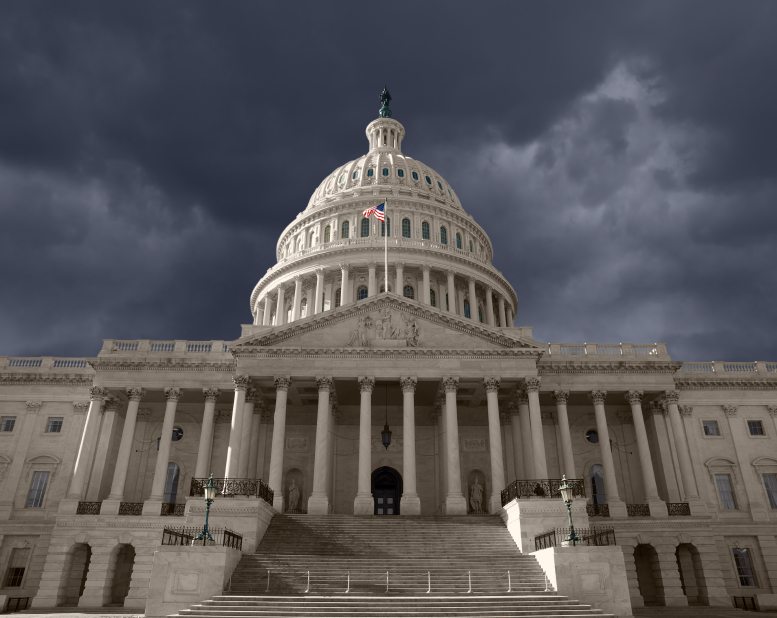By Danielle Junio | Published by Feb. 24, 2019
As a majority of us know, the United States welcomed the New Year with one of the longest government shutdowns in history due to a border wall debate between President Trump and congress. Just after twenty—one days of the shutdown Times magazine noted that it had affected about 800,000 workers and American citizens who depend on our government’s services. Times magazine also mentioned “the shutdown has meant that national parks are filling up with trash and many are closed, that some government loans and grants are not being processed, that Coast Guard members and others have been forced to work without pay, and that the Food and Drug Administration has stopped its routine food safety inspections, among other consequences.”
“I feel like the government is not thinking about the people and how to keep them safe. I really feel sad and sorry for the parents who have kids because since no food inspections were performed the food that was sold in the store would have made someone’s child sick,” Ijeoma Akpu, a senior environmental biology major at Kean University.
The routine food safety inspections performed by the FDA key role is to prevent foodborne-illness from reaching consumers. Without the Food and Drug administration being able to perform their routine inspections on products such as fresh produce and meat (including seafood) there is a greater chance of a foodborne-illness outbreak such as E-Coli and even Vibrio.
However, according to the New York Times article “Government Shutdown Curtails F.D.A. Food Inspections,” written by Sheila Kaplan, Sarah Sorscher (a Deputy Director of Regulatory Affairs) mentioned that the FDA made an announcement stating that they had tried their best to continue these safety inspections on products that are known to be a “high-risk” throughout the shut-down.
Although the FDA had tried their best to perform these inspections on high-risk products, this should still be a major concern to consumers since within the past year there has been a massive E-Coli outbreak in romaine lettuce. The E-Coli outbreak from the romaine lettuce alone hospitalized about 197 people, killed a handful of people, and even left 26 patients with kidney failure, according to the CDC (Center for Disease Control). The CDC also states that “foodborne diseases in the United States send about 128,000 people to the hospital each year, and kill 3,000.” Shockingly, all of that has happened while the FDA was fully running their routine food safety inspections.
Along with the FDA, the government shut-down also had a negative impact on the EPA (Environmental Protection Agency). According to the Environmental Protection Network, during the 2019 government shutdown the EPA stopped “most activities related to hazardous waste cleanups under the national Superfund program, inspections to ensure regulated activities are being done safely and lawfully, enforcement work such as case development, and administrative or court hearings, approvals for the importation of pesticide products, even if products awaiting approval back up in the ports, reviews or approvals for sale of toxic substances, Responses to Freedom of Information Act requests, processing state grants and auditing how federal money is being used, and issuance of federal permits, although states issue many permits that would not be directly affected.”
“This particularly makes me nervous because these tests are here to avoid us getting sick and for our safety. Without these tests who knows what is getting passed us and how this can damage our health,” Maura De Palma, a junior geoscience major at Kean University.
As De Palma stated, the EPA’s tests also play a key role in making sure the country’s people are safe and healthy by enforce the regulations such as the “Clean Water Act” and the “Clean Air Act.” These standards aid in keeping people safe and healthy because it makes sure that people are receiving uncontaminated drinking water and monitors the amount of air pollution our country produces.
The EPA also keeps track of hazardous waste disposal to ensure that hazardous wastes are being discarded properly to prevent contact with people. Without the EPA enforcing these regulations and monitoring quality control, people could become very sick. For example, there was a time where hydraulic fracking companies would discretely discard their hazardous waste in dump sites where the toxic “fracking fluid” was seeping into people’s fresh drinking water; as a result the residents in those areas became very ill.
It has been proven that some of the known effects of the contamination of air and water from hydraulic fracturing can lead to testicular toxicity, malformation of the embryo, bone marrow depression, hemolysis, and a countless amount of other symptoms (LifeGate 2016). For more information there is a whole video about hydraulic fracking and how the contaminated water and air as a result from it can negatively affect people’s health titled “Gasland.”
